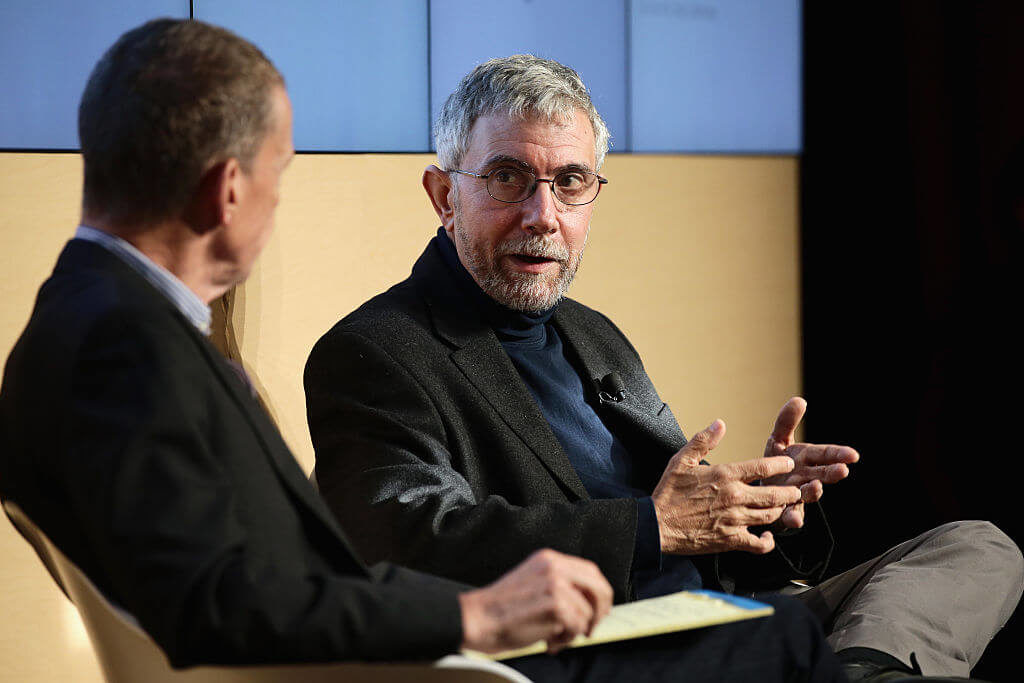No one knows exactly what will cause the next financial crisis, not even a Nobel Prize-winning economist like Paul Krugman.
“We are poorly prepared to deal with the next shock. Interest rates are still close to zero in the US and in most of the rest of the advanced world. The fiscal policy we did was badly handled in the aftermath of the 2008 crisis, and there’s no particular reason to think it will be better. In fact, there’s good reason to think it will be worse.”
Surveying the global economy, there is nothing obvious to point to — like the housing bubble in 2007 —as the next big thing primed to crash the markets.
The biggest red flag, Krugman says, is selective memory as to why the last crisis happened in the first place, particularly when it comes to shadow banking — institutions that look and function like banks but are not regulated like banks.
Economists pointed at the loosely regulated market for repurchase agreements — short-term loans offered to institutional investors — as one of the main culprits behind the last financial crisis.
Per a recent interview with Business Insider:
The topic arose again earlier this year when, before the 10th anniversary of the crisis, the Financial Stability Board — a regulatory watchdog for G20 countries — said its measure of shadow-banking activities rose 8% to $99 trillion. That made up about 30% of global financial assets and was the highest level since 2002.
“The case for basically revitalizing the system of bank regulation to cover this broader financial universe is really strong,” Krugman told Business Insider in an exclusive interview.
“That’s important because a lot of people are pushing really hard to take away the limited financial regulations that were in fact put in place … it’s this real amnesia going on in the political sphere.”
Krugman recently launched an online course on economics for Masterclass, and this is one of the lessons he hopes to impart.
Another thing Krugman wants people to bear in mind is how certain swaths of the public reacted to the crisis. In his view, there were unfounded concerns that swirled around the stimulus measures that monetary authorities put in place to revive the economy, including the Federal Reserve’s unprecedented bond purchases to suppress borrowing costs. This expansion will be the longest ever if it continues through July.
“I hope we’ll have less harassment of the Fed and other players when they try to deal with the [next] crisis,” Krugman said. “We had an amazing amount of trying to stop them from doing what they could, which was limited by all these years of totally unwarranted fears of inflation.”
The inflation fears never materialized, but there are other things that make the economy more vulnerable to the next inevitable collapse, Krugman says.
“We are poorly prepared to deal with the next shock,” Krugman said. “Interest rates are still close to zero in the US and in most of the rest of the advanced world. The fiscal policy we did was badly handled in the aftermath of the 2008 crisis, and there’s no particular reason to think it will be better. In fact, there’s good reason to think it will be worse.”
And that’s not all as a lot hangs in the balance this weekend as presidents Donald Trump of the U.S., and Xi Jinping of China, will talk at the G20 meeting to see if they can hammer out a new trade deal.
A new deal would likely send stocks soaring again, but Krugman says both countries are in danger of throwing away frameworks that successfully governed trade between the two for many years.
“‘If I sell to you, I win, and if I buy from you, I lose’ is a really wrong way to look at things,” he said.
Krugman did not go as far as to say the next financial crisis hangs in the balance of a new trade deal, Fed policy, further deregulation or any specific force.
“The tragedy of all this is that we actually had the knowledge and we had the tools to make this a much less severe crisis than it actually turned out being,” Krugman said.
